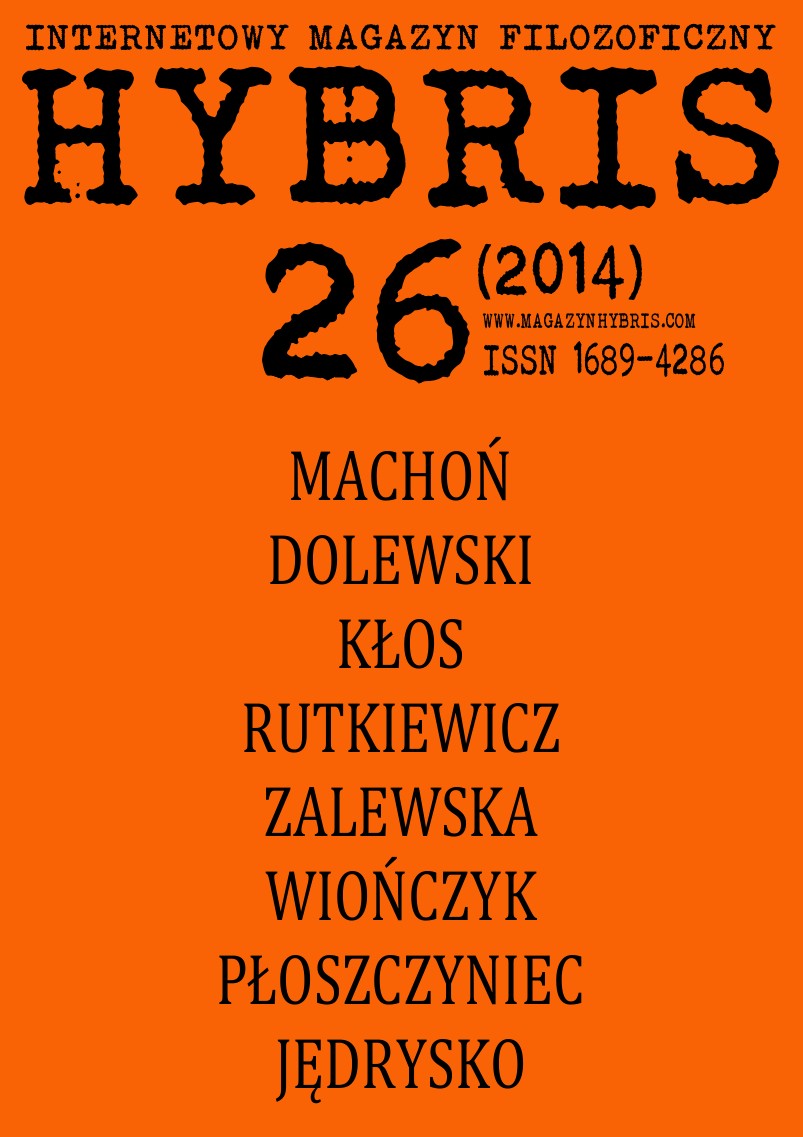The limits of philosophy. Nikolai Fedorov and the project of the common task
DOI:
https://doi.org/10.18778/1689-4286.26.08Abstract
This paper is a presentation of Nikolai Fedorov’s main and only idea: the abolition of death and the resurrection of the dead of all generations. Fedorov’s philosophy is a unique mix of theological and futuristic-utopian narratives. Firstly, I take a look at Fedorov’s religious assumptions: the relation between God and man and the meaning of Lazarus' resurrection for mankind. Secondly, I examine the social and technological conditions which have to be fulfilled in order to animate the dead bodies of our forefathers. Then, I try to characterize Fedorov’s thinking as a deontological moral philosophy based on the concept of imperative. I arrive at the conclusion that Fedorov’s project, on the one hand, exceeds and, on the other hand, extends the limits of what we call “philosophy”. Additionally, some recent contexts of Fedorov’s idea in modern Russia will be mentioned in the article: Strategic Social Initiative 2045 and political party Evolution 2045.
References
Bulgakov, S., 2004, Zagodochniy myslitel, [w:] S. G. Semenova, A. G. Gacheva (red.), N. F. Fedorov: pro et contra. K 175-letiju so dnia rozhdenija i 100-letiju so dnia smerti N. F. Fedorova. Antologiya, Sankt-Peterburg: Izdatelstvo Russkovo Khristianskovo Gumanitarnovo Institiuta, ss. 391–399.
View in Google Scholar
Dobieszewski, J., 2007, Nikołaj Fiodorow — ekscesy zmartwychwstania, [w:] J. Dobieszewski (red.), Wokół Szestowa i Fiodorowa. Almanach myśli rosyjskiej, Warszawa: Wydawnictwo Uniwersytetu Warszawskiego, ss. 71–84.
View in Google Scholar
Fiodorow, M., 2012, Filozofia wspólnego czynu, przeł. C. Wodziński, M. Milczarek, Kęty: Wydawnictwo Marek Derewiecki
View in Google Scholar
Mazurek, S., 2006, Utopia i łaska. Idea rewolucji moralnej w rosyjskiej filozofii religijnej, Warszawa: Wydawnictwo IFiS PAN
View in Google Scholar
Milczarek, M., 2009, Z Martwych was wskrzesimy. Filozofia Nikołaja Fiodorowa, „Kronos”, nr 3[10], ss. 45–57.
View in Google Scholar
Sawicki, A., 2008, Poprzez bunt i pokorę. Zagadnienie cierpienia i śmierci w eschatologicznych koncepcjach myślicieli rosyjskich. Fiodorow — Bułgakow — Niesmiełow — Karsawin — Bierdiajew, Białystok: Wydawnictwo Politechniki Białostockiej.
View in Google Scholar
Semenova, S., 2004, Filosof buduschevo veka Nikolai Fedorov, Moskva: Pashkov dom
View in Google Scholar
Spidlik, T., 2000, Myśl rosyjska. Inna wizja człowieka, przeł. J. Dembska, Warszawa: Wydawnictwo Księży Marianów.
View in Google Scholar
Wiśniewski, E., 2011, Rosja chce osiągnąć nieśmiertelność do roku 2045, http://www.kresy.pl/wydarzenia,spoleczenstwo?zobacz/rosja-chce-osiagnac-niesmiertelnosc-do-roku-2045 (01.08.2013)
View in Google Scholar
http://2045.ru/, (01.08.2013)
View in Google Scholar
http://evolution.2045.ru/, (01.08.2013)
View in Google Scholar
DOI: https://doi.org/10.1055/s-0033-1353562
Downloads
Published
How to Cite
Issue
Section
License

This work is licensed under a Creative Commons Attribution-NonCommercial-NoDerivatives 4.0 International License.






